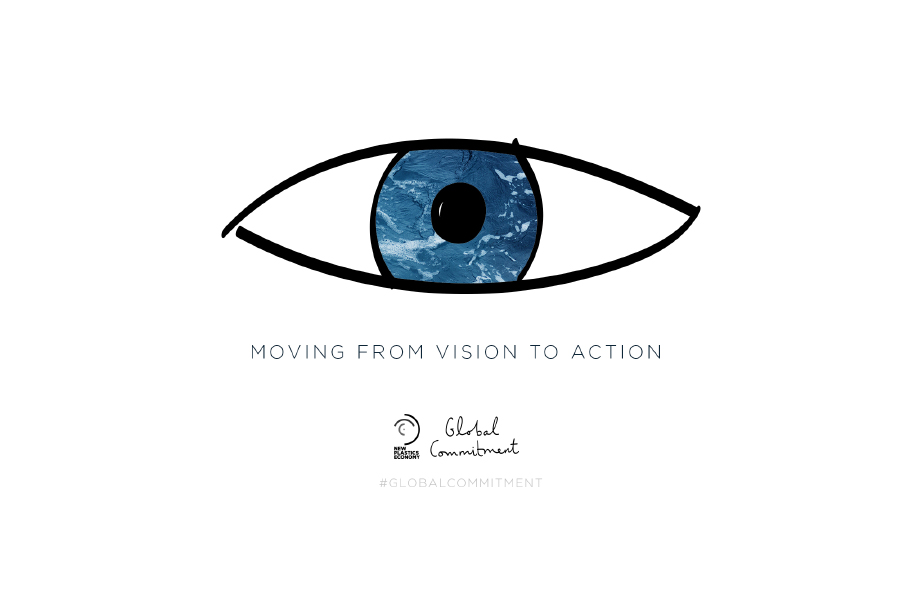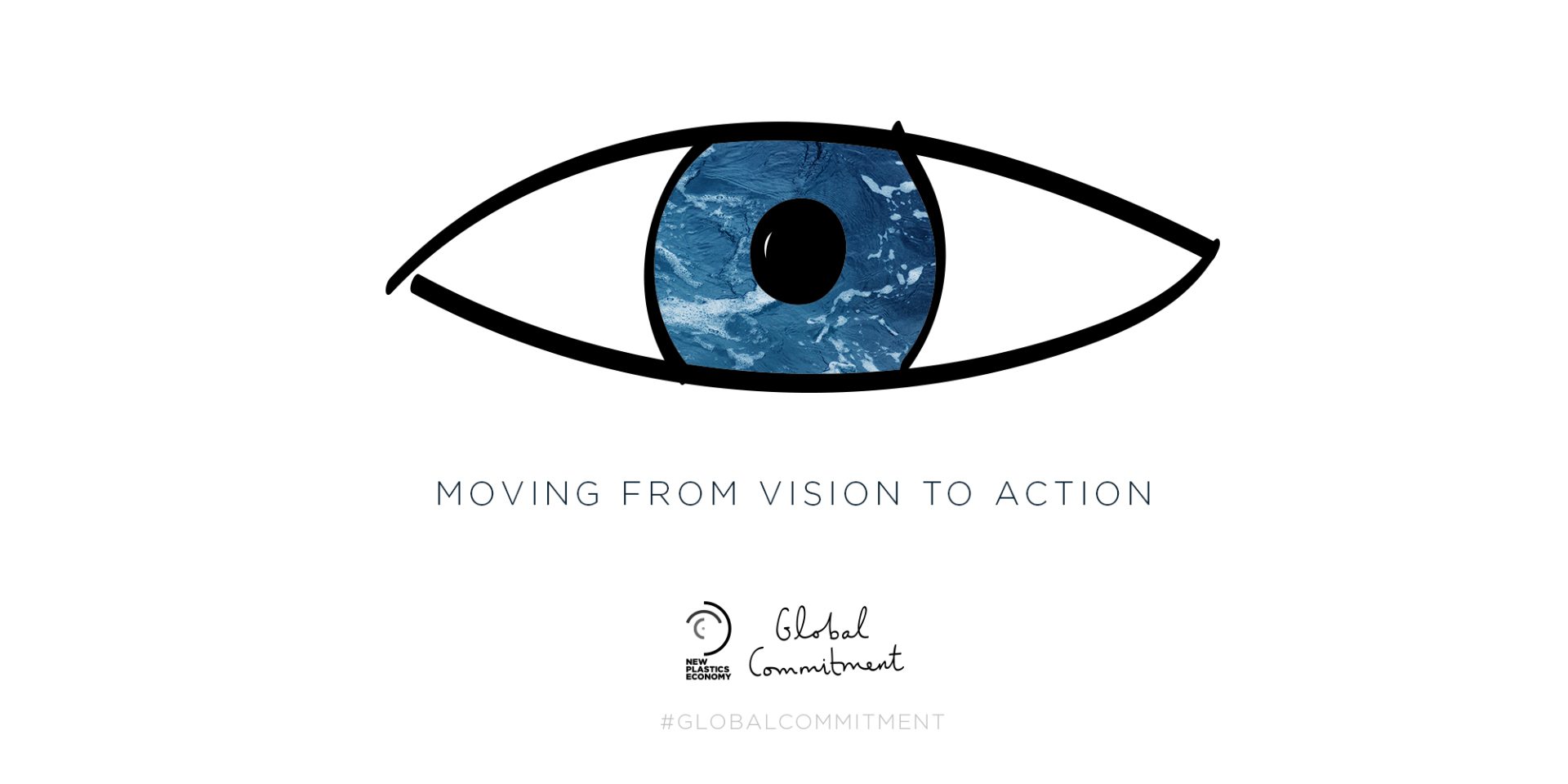LPP has joined the global New Plastics Economy initiative

LPP is the first Polish company to join the New Plastics Economy Global Commitment, a global initiative for a circular economy in the field of plastic management. This is an international agreement initiated by the Ellen MacArthur Foundation in cooperation with the United Nations, which aims at the total elimination of non-circular plastic waste. The Polish clothing manufacturer has committed itself by 2025 to using plastic packaging that meets one of the following criteria: 100% reusable, recyclable or compostable.

– Only a few years ago it seemed that the concept of ecological fashion was reserved for niche brands. Today, we believe it is time for a breakthrough in the entire industry. Here, in LPP, we address the needs of the world around us, analyse the challenges and take decisive action. For over 25 years we have reached business maturity on the market and developed a position that allows us to create trends in the industry. Joining the global agreement for rational plastic management and elimination of plastic waste means taking radical action in a relatively short period of time. At the same time, it is a signal of upcoming changes in all LPP brands. New commitments to environmental protection will become the foundation of our development strategy for the coming years – announces Marek Piechocki, CEO of LPP.
New Plastics Economy Global Commitment is an agreement supported by, among others, Frans Timmermans, Stella McCartney, or the head of WWF organization Pavan Sukhdev, who signed an open letter to business and government representatives appealing for joint actions to eliminate plastic waste and pollution at its source. As part of an international agreement, some 400 organisations have already committed themselves to combating plastics waste that is not subject to circular recycling. Similar commitments were made by LPP, as the first company in Poland.
– In many spheres of social life, the use of plastic has become a habit so natural that it would be difficult to imagine its complete elimination. However, the overproduction of plastic, its short life cycle and the lack of circularity have become a global problem that we should combat. We want to achieve this by teaching how to manage plastics wisely and by taking the initiative towards a circular economy. In practice, this means putting into circulation only plastics that can be reused, recycled or composted – comments Anna Miazga, CSR Coordinator in LPP.
Being aware of the environmental impact of plastic overproduction, LPP decided to introduce changes in all stores in Poland in September this year, replacing free plastic bags with recycled paper bags. – We are aware that the large-scale use of any raw material must be in line with the principles of sustainable development. Therefore, our bags will be made of recycled paper. The reuse of this raw material makes it possible to significantly reduce water and energy consumption in its production and to protect forests. We have also decided to support the latter in other ways. We want to spend part of the funds from the sale of bags on the reconstruction of the Kashubian forests, which were completely destroyed during the storm in 2017 – adds Anna Miazga.
According to the packaging manufacturers, the token payment for a shopping bag is one of the good practices that are proven in many markets. Its impact on changing consumer behaviour and limiting the production of packaging with great benefits for the environment is visible. As a result, customers are less likely to reach for new bags and more willing to use the reusable ones.
Joining the New Plastics Economy agreement is yet another step of the Polish clothing manufacturer towards sustainable development, which in the coming years is to determine the further development of the company. By signing the international agreement, LPP undertook not only to manage plastic rationally in stores, but also to eliminate, by 2025, plastic packaging not subject to reuse from online sales, logistics operations, including shipments of products from suppliers. – Joining the initiative is a serious organizational challenge that we are ready to face today. However, with more than 1700 stores in over 20 countries, the process will take time. Therefore, in the first stage we will implement the most radical changes in all stores in Poland, and only then will we continue them in the sales network outside the country. There, we will also introduce rules consistent with the circular economy – comments Marek Piechocki, CEO of LPP. Soon in the stores abroad customers of brands belonging to LPP will use only bags made of recycled film. The LPP team has already initiated works to change the plastic packaging system throughout the company’s supply chain.
LPP is the first Polish clothing company that has consistently introduced sustainable solutions into its business for several years. In 2018 alone, in two million pieces of clothing, LPP replaced the use of conventional cotton with an organic variety. In the same year, Reserved launched the first premium collection where 40% of pieces were made of ecological materials, and the 20 largest stores of the brand introduced containers for collection of used clothing. Customers can donate clothes of any brand there, and the collected clothes are transferred to St. Brother Albert’s Aid Society to help the homeless and the poor. The next step is rational management of plastic waste and making responsible commitments in this area.
– New Plastics Economy Global Commitment is an agreement initiated by the Ellen MacArthur Foundation in cooperation with the United Nations in October 2018. To date, this initiative has brought together several hundred organisations from around the world with a common vision and an ambitious set of targets for 2025. The aim is to address the global plastic waste and pollution crisis at its source. We are happy to be the first Polish company to join the initiative to combat the unreasonable and short-sighted use of plastics. We hope that other Polish entrepreneurs will follow in our footsteps – adds Anna Miazga.
______________________________________________________________________________
LPP SA is a Polish family business and one of the fastest growing clothing companies in the region of Central and Eastern Europe. For over 25 years it has been successfully operating in Poland and abroad, offering its collection already on 24 markets, including in such prestigious capitals as London, Berlin, Tel Aviv or Moscow. LPP SA manages five fashion brands: Reserved, Cropp, House, Mohito, and Sinsay. The company has a chain of over 1700 stores with the total area of over 1 million sq.m. and operates online stores in 12 European countries. On the basis of a global supply chain, the Polish clothing producer distributes over 200 million pieces of clothing to three continents. LPP plays another important role as it employs over 25 thousand people in its offices and sales structures in Poland, Europe, Asia, and Africa. The company is listed on the Warsaw Stock Exchange in the WIG20 index and belongs to the prestigious MSCI Poland index.

